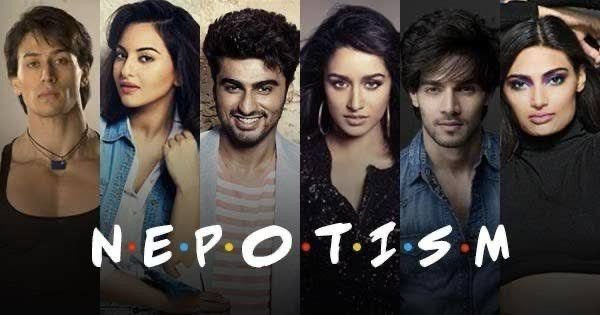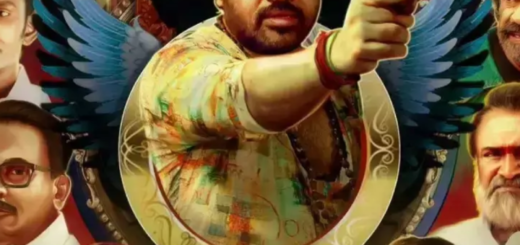Nepotism in Bollywood: Is It Really That Bad?

Bollywood loves dreams. It builds stories about small-town kids who fight the world and rise to stardom, but behind that glitter lies a complicated truth. Nepotism has lived in the industry since its earliest days, and it still shapes careers, headlines, and public judgments. Some people defend it as tradition. Others call it unfair privilege. To understand if nepotism is really that bad, we need to look at history, hard numbers, and real careers — both of those born into cinema and those who broke in from outside.
The Birth of Film Families
Nepotism in Bollywood did not start today. It began decades ago, when Prithviraj Kapoor stepped into Indian cinema in the 1920s. His family built one of Bollywood’s first dynasties. His sons, grandchildren, and great-grandchildren all joined the industry. Raj Kapoor directed and acted. Rishi Kapoor carried the legacy forward. Today, Ranbir Kapoor stands as the latest superstar from that family tree. The film industry grew around such dynasties. The Bachchans, Chopras, Dutts, and Khans followed a similar path. By the 1970s, Bollywood had already turned into an inherited profession for many.
Nobody complained then, because the industry looked small and intimate. Studios were family-owned. Sets felt like private homes. Children playing around studios naturally picked up acting, directing, or music. But as the industry grew bigger and global, outsiders arrived with talent, training, and dreams. Competition increased. The word “nepotism” became sharper and louder.
A Turning Point: The Modern Debate
For years, Bollywood fans celebrated star families. But the debate took a sharp turn around 2017. A popular awards show used the phrase “Nepotism Rocks” on stage as a joke, but the audience didn’t laugh. It triggered a national argument about fairness. In 2020, after actor Sushant Singh Rajput died, the conversation exploded. People questioned whether the industry treated outsiders unfairly. Has nepotism grown too powerful? Does it control box office success and awards? Or does it only provide the first opportunity?
To answer that, we need proof — and Bollywood actually provides data, not just emotional stories.
Who Really Performs Better? Star Kids vs Outsiders
Let’s start with debut films. If nepotism guarantees success, every star kid should make a hit entry.
But that does not happen.
Star Kids’ Debut Results
| Actor | Debut Film | India Nett Collection (₹ crore) | Verdict |
|---|---|---|---|
| Ranbir Kapoor | Saawariya (2007) | 20.92 | Flop |
| Alia Bhatt | Student of the Year (2012) | 70.00 | Semi-Hit |
| Sooraj Pancholi | Hero (2015) | 31.32 | Flop |
| Harsh Varrdhan Kapoor | Mirzya (2016) | 10.43 | Flop |
| Ananya Panday | Student of the Year 2 (2019) | 69.11 | Flop |
Some star kids struggled right from the start. Ranbir’s debut film failed. Sooraj Pancholi got a big launch with Salman Khan’s backing, but Hero flopped. Harsh Varrdhan Kapoor received strong production support, yet audiences rejected his films.
Only Alia Bhatt entered with a semi-hit and then built a strong career through hard work and consistent performances.
Outsiders’ Debut Results
| Actor | Debut Film | India Nett Collection (₹ crore) | Verdict |
|---|---|---|---|
| Deepika Padukone | Om Shanti Om (2007) | ~78.17 | Blockbuster |
| Ranveer Singh | Band Baaja Baaraat (2010) | ~23.17 | Average to Hit |
| Ayushmann Khurrana | Vicky Donor (2012) | 41.00 | Hit |
| Sushant Singh Rajput | Kai Po Che! (2013) | 43.58 | Semi-Hit |
| Kartik Aaryan | Pyaar Ka Punchnama (2011) | 12.58 | Average |
These actors had no godfathers. Yet Deepika delivered a blockbuster on day one. Ranveer impressed critics. Ayushmann and Sushant earned credibility with story-driven cinema. Kartik worked his way up from small films to mass success.
So, nepotism offers entry, not applause. The audience decides who stays.
The Advantage Star Kids Still Hold
Even though star kids don’t always succeed, they enter with advantages outsiders rarely receive.
1. Easier Access to Auditions
Star kids don’t stand in lines outside casting offices. Producers call them first. Scripts land in their inboxes even before launch.
2. Bigger Budgets and Promotions
Debut films of star kids come with strong marketing, designer styling, and guaranteed theater screens. Outsiders often start with small films, limited posters, and word-of-mouth marketing.
3. Multiple Chances
This is where nepotism feels unfair. Sooraj Pancholi got films even after Hero failed. Harsh Varrdhan Kapoor kept working despite flops. In contrast, outsiders often disappear after one failure.

When Star Kids Prove Their Worth
Not all star kids ride on privilege alone. Some work twice as hard to defeat stereotypes.
- Alia Bhatt started as the glamorous Shanaya in Student of the Year. Then she transformed. In Highway, she delivered a raw, emotional performance. In Raazi, she carried the film on her shoulders. In Gangubai Kathiawadi, she stunned critics and audiences. She used her surname as an entry ticket, but her talent built her career.
- Ranbir Kapoor faced rejection with Saawariya. But he came back with Rockstar, Barfi!, Tamasha, and Sanju. He studied under respected filmmakers and proved range and dedication.
- Kareena Kapoor Khan, Hrithik Roshan, Shahid Kapoor — all star kids. But their success never stayed dependent on surnames. They trained, evolved, and delivered strong performances across decades.
So nepotism can open a door, but it cannot teach acting or guarantee applause.
When Nepotism Fails Completely
Many star kids could not win over the audience, no matter how much support they received.
- Uday Chopra starred in multiple big-banner films under Yash Raj. Most failed. He eventually quit acting.
- Fardeen Khan had a famous father, Feroz Khan. His films struggled, and he vanished from cinema.
- Jackie Shroff’s son Tiger succeeded, but his daughter Krishna stayed out of acting after limited offers.
- Abhishek Bachchan carried the Bachchan surname, but his career stayed inconsistent despite many second chances.
These careers show that the audience does not worship surnames forever.
Outsiders Who Became Superstars
The most inspiring stories in Bollywood come from artists with no connections.
Shah Rukh Khan
A boy from Delhi entered TV serials. He moved to Mumbai with no films lined up. His energy, ambition, and confidence turned him into the “King of Bollywood.”
Akshay Kumar
He worked as a waiter and martial arts trainer. He faced rejection, struggled, and built his image with action films. Today he stands among the most bankable stars.
Priyanka Chopra
She came from a non-film family, entered through pageants, and built an international career. She never leaned on anyone’s shadow.
Ayushmann Khurrana
He chose films about sperm donation, baldness, gender identity, and middle-class life. No star kid would dare attempt those subjects early in their career.
Outsiders don’t always get a comfortable start. But when the audience supports them, they rise without limits.
The Role of Critics, Media, and Public Perception
Media attention twists the nepotism debate into a personal battle. When star kids fail, journalists call them “privileged yet talentless.” When outsiders break through, the media paints them as warriors.
Social media shaped a loud, emotional wave after 2020. Many people blamed nepotism for Sushant Singh Rajput’s struggles. Whether true or not, the industry faced outrage. Films of certain star kids faced boycotts. Trailers received record dislikes. Audiences wanted accountability.
But time passed. Emotions cooled. Audiences returned to judging films by quality, not emotions alone. A good film still works. A bad film fails, no matter who stars in it.
OTT Changed the Game
Netflix, Amazon Prime, Hotstar, and other platforms broke the old gates. Directors no longer need a famous face to sell a project. They only need a strong story.
Artists like Pankaj Tripathi, Jaideep Ahlawat, Shefali Shah, Vijay Varma, and Radhika Apte gained love because of digital platforms. They did not carry famous last names. They carried authenticity. Casting directors became more powerful than film families. Talent found new ways to shine.
Is Nepotism Really That Bad?
Nepotism exists. It offers comfort, entry, and opportunity to some. It blocks deserving artists in many cases. But it does not control the audience. It cannot force a hit. It cannot buy respect.
Here is a simple truth:
- Nepotism gives a chance.
- Talent decides survival.
- Audience decides legacy.
Some star kids like Alia Bhatt and Ranbir Kapoor prove their mettle. Some fail and disappear. Some outsiders fight for years and shine brighter than anyone imagined.
So, is nepotism bad? Yes, when it closes doors for hardworking artists. But it doesn’t destroy Bollywood. It coexists with talent, dreams, and millions of people who still believe in good stories.
Conclusion
Bollywood stands at a crossroads. The old system of inherited fame still lives. But the new era of talent-driven cinema grows stronger every day. Box office numbers, digital platforms, and public opinion now act as bigger judges than surnames.
The debate around nepotism should not divide fans. Instead, it should push the industry to become fairer. More open auditions. More support for fresh talent. More recognition for skill over ancestry.
Bollywood will always have film families. But it will also always have new dreamers who walk into the city with nothing but courage. When the lights fade and the screen goes dark, only one truth remains — the audience claps for emotion, not privilege.
Also Read – What Bollywood Can Teach About SIP Discipline













